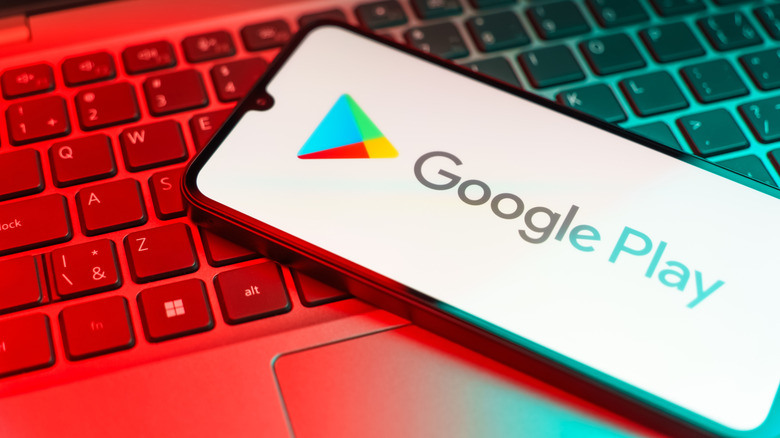Google Warns Users: Don't Fall For This Dangerous VPN Scam
The use of Virtual Private Networks (VPNs) has been increasing, with a recent CNET survey finding that 43% of American adults are now using them. There are several reasons why so many people are now installing these apps. Accessing content banned in certain countries and saving money on streaming service costs are two commonly cited reasons for their popularity. However, the primary reason for using one is privacy and security, with 52% of Americans saying that protecting their IP address was the main factor.
Now Google is warning that "bad actors" are attempting to exploit the popularity of VPNs. In November 2025's fraud and scams advisory, Google has expressed concern about the problem of malicious applications that are disguised as legitimate VPNs. Whereas one aspect of a genuine VPN is to add another layer of security to a system, these malicious VPN apps do the exact opposite. Among the potential vulnerabilities are payloads that include remote access and banking trojans that can access used data, including browsing history, messages, and financial information.
However, before you rush out and uninstall your VPN, it should be noted that Google goes to great lengths to ensure that such applications are not available from the Google Play Store. Both Android and the Google Play app use machine learning to detect such malicious apps. Although this doesn't mean that due diligence shouldn't be applied when installing any application, and you should still be on the lookout for similar scams when using operating systems other than Android.
Let's have a closer look at fraudulent VPNs and the steps you can take to protect yourself against the threat.
How do fake VPNs work?
A genuine VPN has a simple, well-defined purpose: it encrypts your internet traffic and masks your IP address so that websites, networks, and even your ISP provider can't easily track your internet activity. A genuine VPN will not need to access your contacts, messages, or have access to any deep system privileges; these are simply not in its job description.
In Google's November 2025 fraud and scams advisory, the company warns that malicious actors are distributing apps that imitate well-known VPN brands in order to gain a user's trust. Some are even using social-engineering tactics to draw users in, this includes sexually-explicit advertising and exploiting geopolitical events. As noted, once installed, these apps can request permissions that no genuine VPN would ever need.
Armed with this level of system authorization, such illicit VPNs can wreak havoc. Among the nasty payloads that these VPNs can deliver are info-stealers, remote-access trojans, and banking trojans. While no system compromise can be considered a good thing, the latter is perhaps one of the most worrying. These trojans can gather all kinds of financial information from a system, including saved account details, banking credentials, and sophisticated variants can even bypass two-factor authentication (2FA) – although it's worth remembering that 2FA should always be enabled.
This might make it sound like installing a VPN is just asking for trouble. However, with some proper precautions, you can significantly reduce the risks and make sure that the VPN on your device is working for you and not scamming you.
How to avoid a fraudulent VPN
The road to staying secure starts with Google. As noted, the company uses machine learning in its Play Store and Android systems to detect rogue applications. This is why it's essential to make sure you have the Google Play Protection setting enabled on Android devices. However, while this is a strong starting point, there are some other steps to take that can help make sure your VPN is legit.
One definite thing to avoid is installing a VPN app using a process called sideloading. In short, a sideloaded app comes from a source other than the Play Store. For example, this could be directly from a website or from a link supplied in a messaging application. Although this bypasses the Google Play protection, Google has developed an enhanced fraud-protection system to protect against this. However, it's always best not to put yourself in the situation in the first place and avoid installing applications from anywhere other than 100% trustworthy sources.
Also, if an app starts requesting permission access for contacts, SMS, or any other permissions unrelated to network access, then these should be treated as immediate red flags. Of course, a solid antivirus application never goes amiss and adds another layer of protection. Finally, it's useful to be aware of the warning signs that your Android phone has a malware infection.
With Google's safeguards and a little caution, you can go a long way to ensuring that your VPN is the genuine article.


